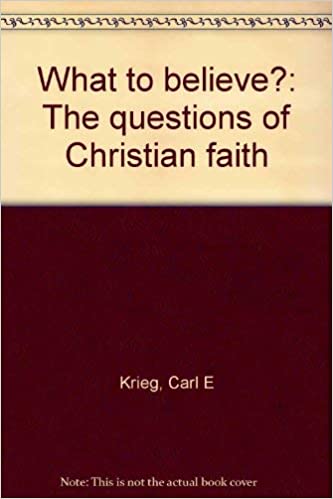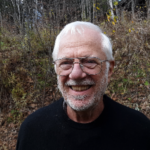Fifty Years Later – Part 3
3rd in Series

[Almost 50 years ago I wrote a book entitled What to Believe?, subtitled The Questions of Christian Faith. Fortress Press had been looking for such a book, and so published it in 1974. Fifty years later, I thought it might be interesting to see how my thinking today has changed. Hence the title. Third in a series.]
*****************
Part 3: How Do We Answer Our Questions?
Past
Throughout its history, the Christian church has created a number of authorities to which one can turn to answer questions. First and foremost, at least in the Protestant tradition, is the Bible. There are more Bible study groups than any other type of discussion group. For the fundamentalist, the Bible is absolutely authoritative, whereas for the more open-minded, the Bible is a 2000 year old record of how people of a certain faith thought about their life in relation to God. Beside accepting that written record, the Catholic church recognizes its own tradition and dogma as authoritative, culminating in the pope, who speaks with absolute authority on matters of faith, sort of like a one person Bible. And then there is literally the one person who, like Martin Luther, defies all of the above and shouts: here I am, and this is what I believe! I suppose Luther has always been my hero, but I also realize that the solo voice needs to listen to compatriots, lest one go off the deep end. Believing that the human mind is a “perpetual factory of idols”, [Calvin], I never thought that the natural world and human nature could provide much insight into the understanding of God. That has changed.
Present
Key to my understanding today are some observations about human life. I’ll refer to these later in the discussion about human nature, but a quick summary is in order. Following the Reformers, and adding a touch of neuroscience, it seems to me that we all become egocentric. As sensations bombard us, we create patterns of interpretation in our brain that reach out and organize that sensation. Eventually, we are no longer able to see what is really “out there” and confuse our perception of reality with reality itself. Having lost genuine connection with Reality, we become uneasy, searching for a life meaning that eludes us. But on certain occasions, “moments” as I refer to them, we are encountered by that Reality and temporarily escape the confines of our own ego.
Relying on common human experience for the basis of my understanding is quite a change from the What to Believe? years, and it provides a basis for communication with everyone, religious and secular alike. Instead of talking about sin, even original sin, we talk about our egocentricity. Instead of talking about encounter with God, we talk about moments. And the way to answer questions is not appeal to the Bible or the pope or dogma, but to common experience that we all share. Because if it doesn’t hold true in our experience, it doesn’t hold true, regardless of what the Bible or Pope may have to say.
Read 1st Article in Series Here
Read 2nd Article in Series Here
Dr. Carl Krieg received his BA from Dartmouth College, MDiv from Union Theological Seminary in NYC and PhD from the University of Chicago Divinity School. He is the author of What to Believe? the Questions of Christian Faith and The Void and the Vision. As professor and pastor, Dr. Krieg has taught innumerable classes and led many discussion groups. He lives with his wife Margaret in Norwich, VT.

